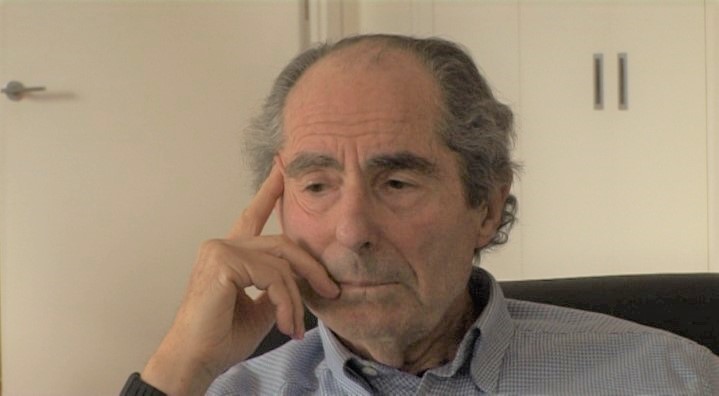NEXT STORY

A book about the Vietnam war
RELATED STORIES

NEXT STORY

A book about the Vietnam war
RELATED STORIES


|
Views | Duration | |
|---|---|---|---|
| 81. Portnoy's Complaint: were you ashamed of it? | 419 | 01:00 | |
| 82. 'What could outlandishness do for me?' | 280 | 01:44 | |
| 83. The Holocaust | 463 | 02:55 | |
| 84. A man named Gans | 273 | 01:52 | |
| 85. My rejected play about Gans | 268 | 01:58 | |
| 86. Further education: the trial of Ivan the Terrible | 301 | 02:20 | |
| 87. Primo Levi and other survivors | 869 | 03:56 | |
| 88. Hiroshima, and the end of the war | 363 | 03:19 | |
| 89. Vietnam | 357 | 03:43 | |
| 90. The manuscript about the girl who blew up a building | 352 | 02:17 |


Early in the '70s, I wrote… I had an idea for something, a story, a novel, about a girl who blows up a building in her home town as a protest against the Vietnam War. And... probably I wrote this in about '72, perhaps '73. – the war was finally coming to an end. But I couldn't get anywhere with it. I think now I... the reason I couldn't get anywhere with it then was the war was too close. I was responding to the war in a very immediate way which wasn't... didn't help what I was writing. But after... every book that I wrote in the years following, as soon as I finished the book, I would go to my drawer and take out this 60 or 70 pages of manuscript that I had written about the girl who blew up a building, and say to myself, there's something here. But I couldn't for the life of me figure it out. And every single book ended the same way. I'd finish the book—I'd get it out of the drawer.
And then in the 1990s, the mid-1990s, after I wrote Sabbath's Theater, I took the 70 pages out and I suddenly saw how I could write this book about the girl who blew up a building. In part, it was because I had written Sabbath's Theater, which is about a...a mischief maker, a terrific mischief maker in Mickey Sabbath, not a man to everyone's taste. And I enjoyed writing that book, but now I felt like writing about a very different man, and that man was Swede Levov, the character in… the father of the girl who blows up the building.
The fame of the American writer Philip Roth (1933-2018) rested on the frank explorations of Jewish-American life he portrayed in his novels. There is a strong autobiographical element in much of what he wrote, alongside social commentary and political satire. Despite often polarising critics with his frequently explicit accounts of his male protagonists' sexual doings, Roth received a great many prestigious literary awards which include a Pulitzer Prize for fiction in 1997, and the 4th Man Booker International Prize in 2011.
Title: The manuscript about the girl who blew up a building
Listeners: Christopher Sykes
Christopher Sykes is an independent documentary producer who has made a number of films about science and scientists for BBC TV, Channel Four, and PBS.
Tags: Sabbath's Theater, Mickey Sabbath, Swede Levov
Duration: 2 minutes, 17 seconds
Date story recorded: March 2011
Date story went live: 18 March 2013